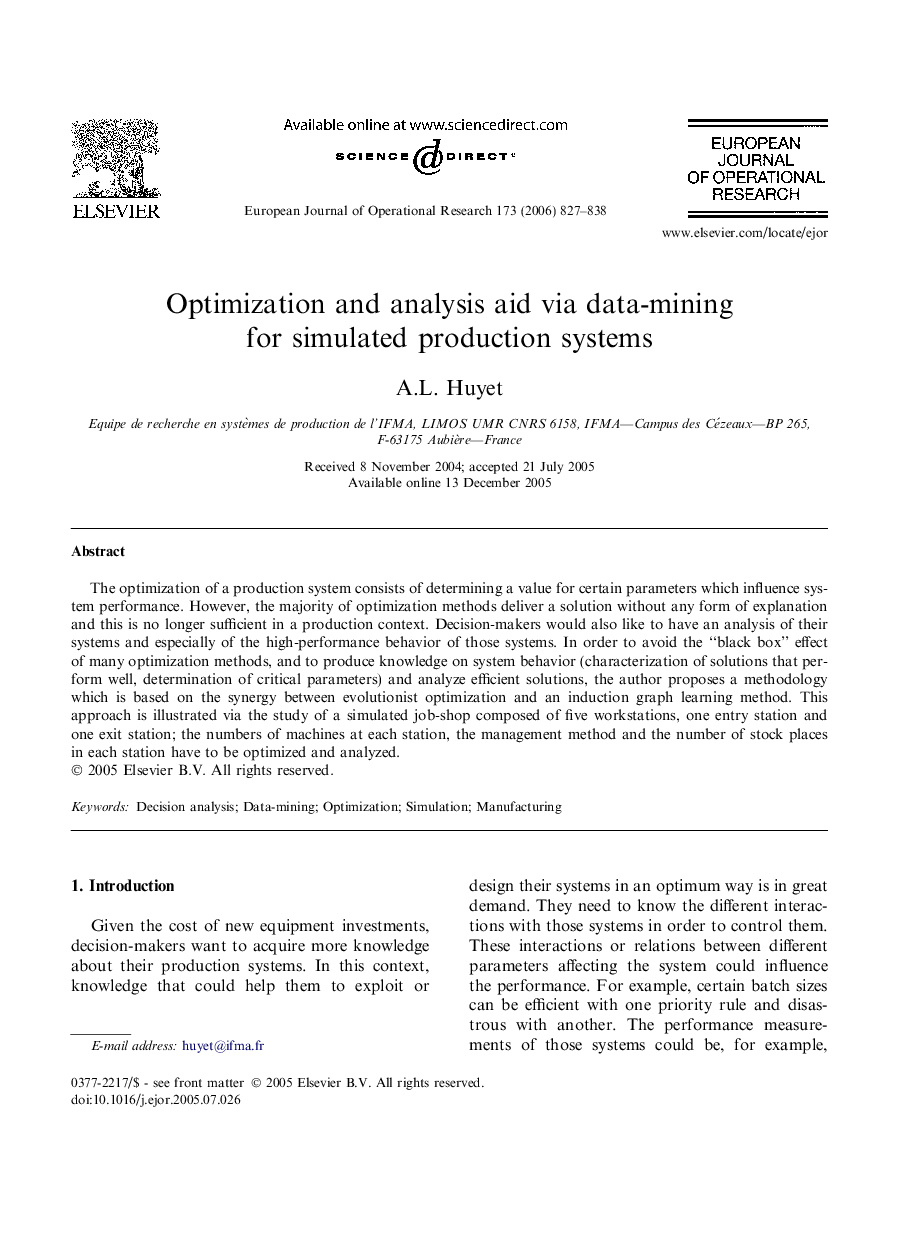| Article ID | Journal | Published Year | Pages | File Type |
|---|---|---|---|---|
| 482653 | European Journal of Operational Research | 2006 | 12 Pages |
The optimization of a production system consists of determining a value for certain parameters which influence system performance. However, the majority of optimization methods deliver a solution without any form of explanation and this is no longer sufficient in a production context. Decision-makers would also like to have an analysis of their systems and especially of the high-performance behavior of those systems. In order to avoid the “black box” effect of many optimization methods, and to produce knowledge on system behavior (characterization of solutions that perform well, determination of critical parameters) and analyze efficient solutions, the author proposes a methodology which is based on the synergy between evolutionist optimization and an induction graph learning method. This approach is illustrated via the study of a simulated job-shop composed of five workstations, one entry station and one exit station; the numbers of machines at each station, the management method and the number of stock places in each station have to be optimized and analyzed.
